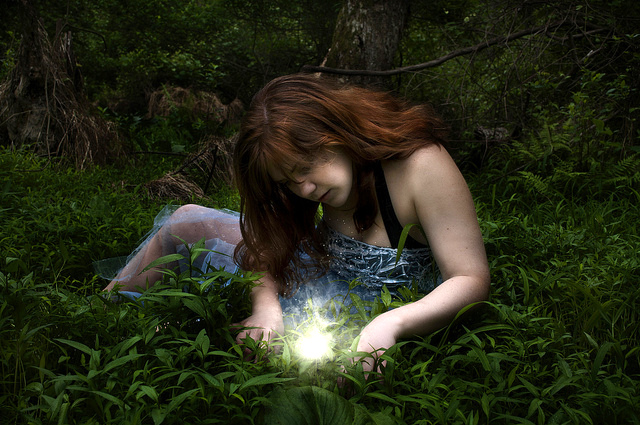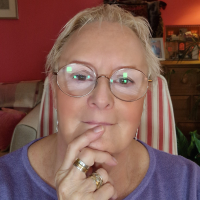~
*Dear elephant reader: if you’re single & looking for mindful dating or conscious love, try out our lovely partner, MeetMindful.
~
“Get over it!” People say.
“It was a long time ago,” they point out. “They probably won’t even remember. The only person still suffering is you.”
“You’ve got to let it go.
“Forgive and move on.”
“This is eating you up,” they say. “You just have to let it go!”
And we don’t disagree with any of this, but the trouble is, we don’t know how.
It’s so easy for others to say, isn’t it? They don’t know, they don’t feel it, they don’t have the constant reminders. They don’t live with the sense of injustice or hurt or outrage. They don’t know the damage, the destruction and disruption. They don’t get how it dominates our lives.
Or just maybe they do.
See, there are some things that have happened to us, each and every one of us, for which we crave “I’m sorry!” And often—mostly, actually—we’re just not going to get one. Ever.
And so, even if a sorry might have meant we could maybe start to let it go, that just isn’t going to be an option. So what do we do with that? How do we go forward? What does it take to be free?
How do we accept the apology we never got?
Below are the six steps that I, as a spiritually awakening human being who happens to have a psychotherapist in her pocket, have found to bring permanent release—if we do the work.
What I also know, without any doubt, is that forgiving does take work. But it’s totally possible, so here goes:
1. Release:
We have to start by allowing ourselves our full emotional response to what happened. No holds barred. This is a frightening thought for many of us. We dread that we’ll start and we won’t be able to stop. We fear it’ll make it feel worse, not better. And it will, just for a while. But we’re cleansing and releasing, we’re letting it all out instead of holding it all in as we’ve done for years.
So cry, shout, swear, accuse—all in the privacy of your own space. Let someone else help you if that feels right. It can help to have another validate everything you’re feeling. It’s soothing and strengthening, and can make the process deeper. Don’t be afraid to say the things you always wanted to say. This is your moment. Own it!
2. Understand why they did what they did:
This is the bit we resist. Some of us reading those words will already be on alert, resistant, saying, “Why should I?!”
If you’re hearing that, that’s why you need to do this. You want to be free, remember?
So why did it happen? Why did this person, or those people, behave that way? What part did their history and what they’d known play in it all? What did they have going on? What journey were they on?
And this is about our understanding of why. We don’t need their answers. We’re finding our own truth here. That’s all we need.
Even, if it’s appropriate and we think honesty and fairness demands it, what part might we have played? Be thorough, be ruthlessly honest here.
Go there, do the work. You’ll find some relief starting to happen as it all becomes a little more balanced.
3. Give up the hope:
Okay, now the work gets deeper. This step isn’t easy, but we can do it if we’ve done the previous steps thoroughly. Here’s what we have to do next: we have to give up the hope.
That means, the hope of how it should have been, how we’d have wished it to be, how they ought to have been, how they should have treated us. How they ought to have loved us properly, known better.
This gets in the way of our accepting the apology we’re never going to get more than maybe anything else. We’re so invested in how it ought to have been that we can’t accept how it was.
So we have to give up the game of hoping that it could have been different that we’ve been conning ourselves with for years. It was as it was. It is where it is. No amount of hoping will change it. So give up the hope.
4. Appreciate how you’ve grown from it:
Our task now is to focus on how what we’re wanting to forgive has benefited us. In a really balanced and measured way. How is the person we are now, the things we value and rate, at least partly a result of what we went through? No bitterness allowed. We’re past that if we’ve gone through the previous steps thoroughly.
Allow some appreciation, some gratitude even. For your growth, your learning, your development. See what’s come out of it. You’re wiser. You know stuff. You see stuff. You understand stuff. Good stuff. Celebrate that.
5. See all that’s happened from your higher perspective:
None of this was random. None of it was accidental. We’re powerful beings of light and love, here to have a meaningful and purposeful and complete experience of what it is to be human. And always, the purpose is to lead us back to compassion and unconditional love.
The bravest of us come for the toughest experiences. Because we’re up for it, because we want the adventure of it, the challenge, and because we know that our journey benefits the journey of every other soul on the planet and beyond.
That’s because we’re not just spiritual beings, but also energetic and vibrational beings. We’re energy, and energy always reaches out, touches, affects, changes and leaves its imprint.
If we could see how our transformation, through this process that leads to accepting the apology we never got, is already sending ripples of light and love out into the universe, we wouldn’t be able to stop grinning.
Try it! That’s what you’re doing right now, just by reading this and allowing the possibility of a different way.
6. Accept the apology:
What apology? There hasn’t been one, has there? Oh, but there has. Because if you came with a purpose, then so did the person or people you’ve been struggling to forgive.
Here’s the crux of it, the piece of the jigsaw that’s been missing. See, none of us could’ve had the experience we came for without the willing co-operation of everyone else who incarnated alongside us in order to make it happen. There are no accidents here. Nothing was ever going wrong here.
Once we can see that the person who never apologised was part of our own spiritual journey, just as have been part of theirs, the apology—if we still need it—becomes almost incidental. We all showed up as promised, we all did what we’d said we’d do, we all played the roles, the game, had the adventure.
And one day, in a space beyond time and place, we’ll all sit around laughing and chatting together about how it went and what we learned. And apologies will be willingly given for hurts along the way.
This has to have all been worth it.
Doesn’t it?
~
Relephant read:
A Simple yet Powerful Forgiveness Prayer We Should Recite Every Year.
~
Author: Janny Juddly
Editor: Khara-Jade Warren
Image: Rachel.Adams/ Flickr
~









Read 2 comments and reply